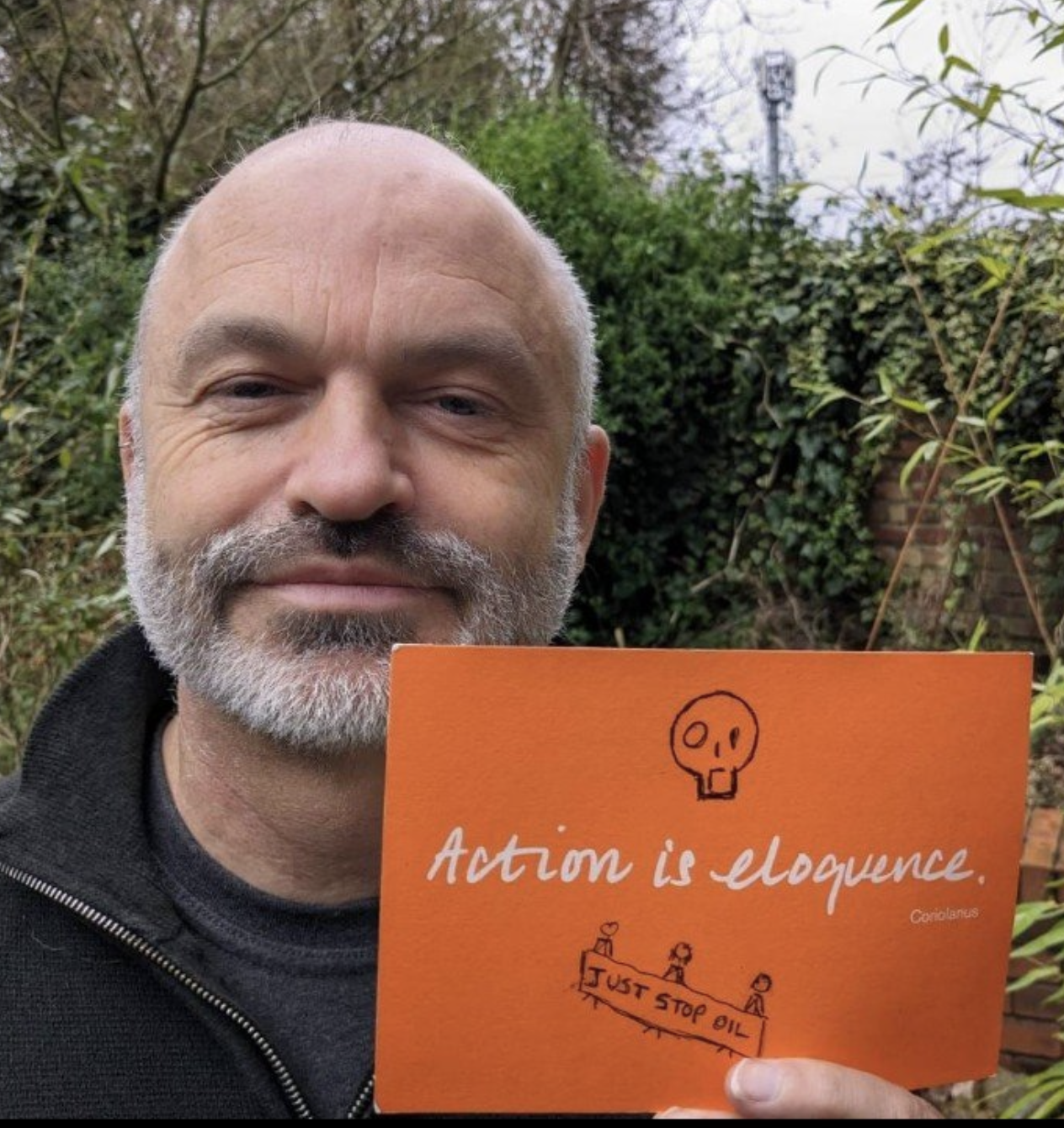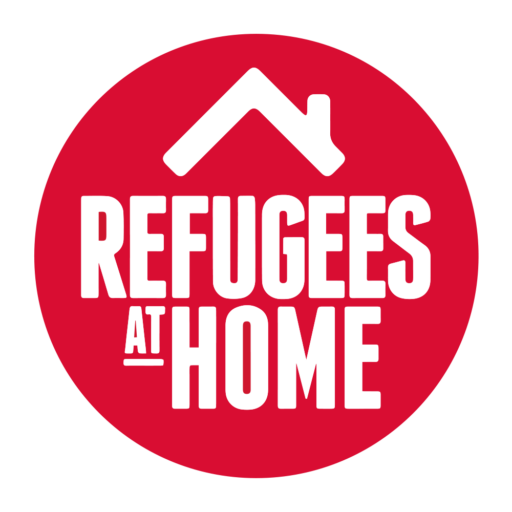
A political choice, and an altruistic action
For Stephen Gingell and his partner Mark, hosting is a political choice as well as an altruistic action. The Manchester-based couple have a strong history of activism and change-making.
Stephen and Mark are both proactive campaigners for LGBT rights (they were heavily involved in the anti- Clause 28 movement in the 1980s), and for the climate movement. Stephen is an active member of Just Stop Oil, and sees strong links between global warming and refugees.
All sorts of people need our support
Stephen says, “I think if you have suffered from discrimination you may be more sensitive, or have a heightened awareness and be more politically engaged. You develop more empathy for others if you have been through something yourself.”
The couple contacted Refugees at Home following the invasion of Ukraine, but they were particularly keen to open their door to refugees from other countries. “There are all sorts of other people who need our support too. We see people from all over the world sleeping in the park near us in Manchester and we thought, ‘those are the people who really need our help’.”

So far they have hosted two guests, both from Sudan. Stephen describes their most recent guest, from Darfur, as “a real example of how to be a positive person”:
“We didn’t like to ask too many questions, but he wanted to share his background. He had come here technically as a child, under 18, but had fallen through the gaps in the system. He arrived on the axels of a lorry. He was such a nice guy with a really positive outlook on life. He’s moved on now, and has private accommodation in Manchester.”
Both guests have got on well with Stephen and Mark’s teenage sons: “They are just young men; modern people in the modern world, coming together over phones, football and Paris St Germain.”
You have to realise, it’s not about you
Their guests have been very independent, asking little from Stephen and Mark, which took them aback at first: “That was a big learning for us. You have this expectation that they are going to come, and you clear a space in the fridge and in the cupboard and get ready to cook them meals, things like that; you take on a slightly parenting type attitude.
“But you have to see the person. In our case, both of our guests had their own lives quite sorted; they were just normal young men, not in the house very often, and eating takeaways or whatever. We had to tell ourselves to stop fussing and asking questions.
“Our guests have our phone number if they need us, but so far they haven’t been in touch. I think you have to realise It’s not about you and your needs. It’s a slightly controlling thing to want to get something out of it. You’re not there to parent someone; you are just there to provide a safe place and food if they want it.”
Why not offer a room and a helping hand?
Stephen and Mark are deeply conscious of the many people forced to flee their countries because of their sexuality. “So many refugees have faced appalling discrimination and persecution in their home countries. They need our support, so why not offer a room and a helping hand?
Stephen describes Omar, an Iraqi asylum seeker he has recently befriended: “He’s a gay man in a repressive country where anyone could report you or entrap you – it’s a very fearful way to live. He was in his late 30s and being pressured to marry by his large extended family. Eventually, his father arranged a marriage for him, and he left the country the day before the wedding. Omar fled to Turkey and then Paris, where he felt anxious and concerned because his extended family had connections there. So he came to the UK on a small boat.
“Omar is still at the start of the asylum process. What’s so frustrating is the Home Office attitude – they say ‘I don’t believe you’re gay’. But last year, Omar took part in Pride in Manchester, carrying a ‘Queer and Muslim’ banner. I thought, ‘Oh my God, that’s such a powerful statement’. Those words are so difficult to chime together, but he was there, proudly holding his banner and I felt very emotional.”


